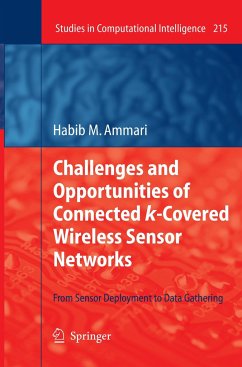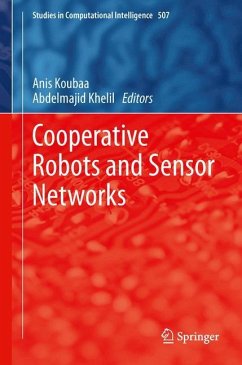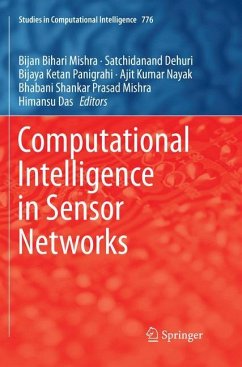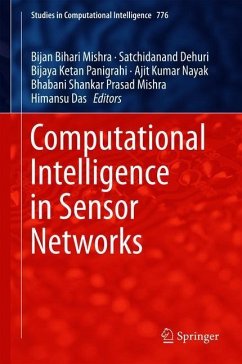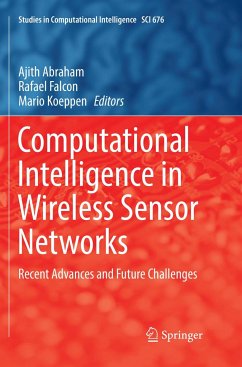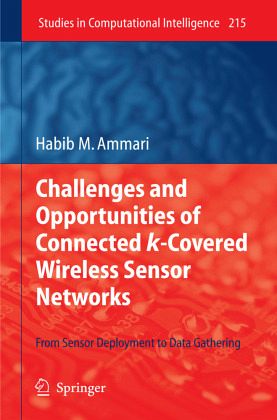
Challenges and Opportunities of Connected k-Covered Wireless Sensor Networks
From Sensor Deployment to Data Gathering
Versandkostenfrei!
Versandfertig in 6-10 Tagen
113,99 €
inkl. MwSt.
Weitere Ausgaben:

PAYBACK Punkte
57 °P sammeln!
"The decomposition of the difficulties to be resolved, or the objects to be known, should be pushed up to the simplest elements ... Such elements are seized directly and completely by the intuition. " René Descartes, Discours de la méthode (1637) Wireless sensor networks have received significant attention because of their - portant role and many conveniences in our lives. Indeed, the recent and fast - vances in inexpensive sensor technology and wireless communications have made the design and development of large-scale wireless sensor networks cost-effective and appealing to a wide range of...
"The decomposition of the difficulties to be resolved, or the objects to be known, should be pushed up to the simplest elements ... Such elements are seized directly and completely by the intuition. " René Descartes, Discours de la méthode (1637) Wireless sensor networks have received significant attention because of their - portant role and many conveniences in our lives. Indeed, the recent and fast - vances in inexpensive sensor technology and wireless communications have made the design and development of large-scale wireless sensor networks cost-effective and appealing to a wide range of mission-critical situations, including civilian, natural, industrial, and military applications, such as health and environmental monitoring, seism monitoring, industrial process automation, and battlefields s- veillance, respectively. A wireless sensor network consists of a large number of - ny, low-powered devices, called sensors, which are randomly or deterministically deployed in a field of interest while collaborating and coordinating for the successful accomplishment of their mission. These sensors suffer from very scarce resources and capabilities, such as bandwidth, storage, CPU, battery power (or - ergy), sensing, and communication, to name a few, with energy being the most critical one. The major challenge in the design process of this type of network is mainly due to the limited capabilities of the sensors, and particularly, their energy, which makes them unreliable.



